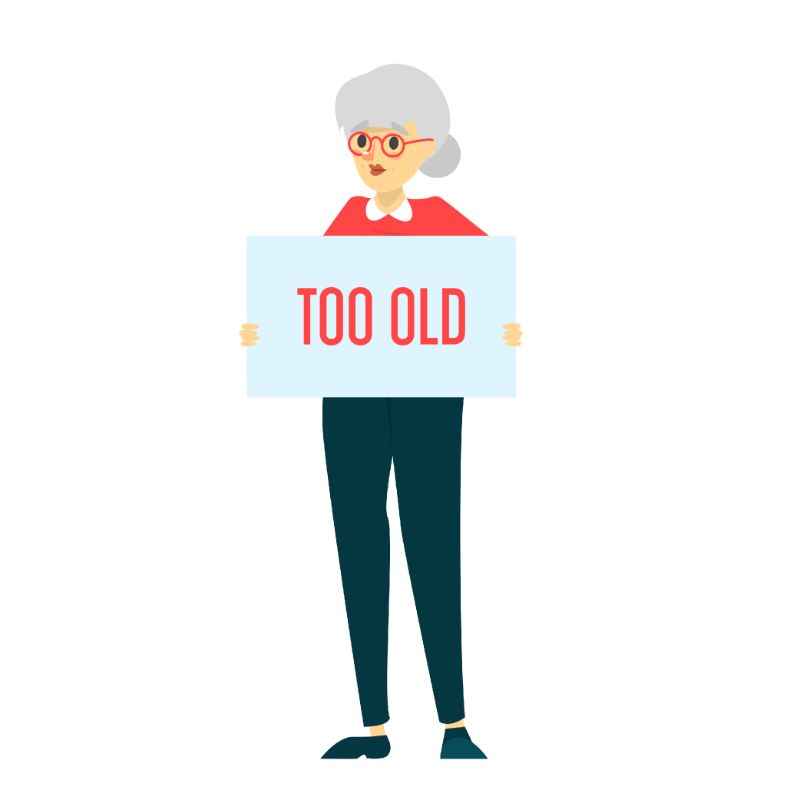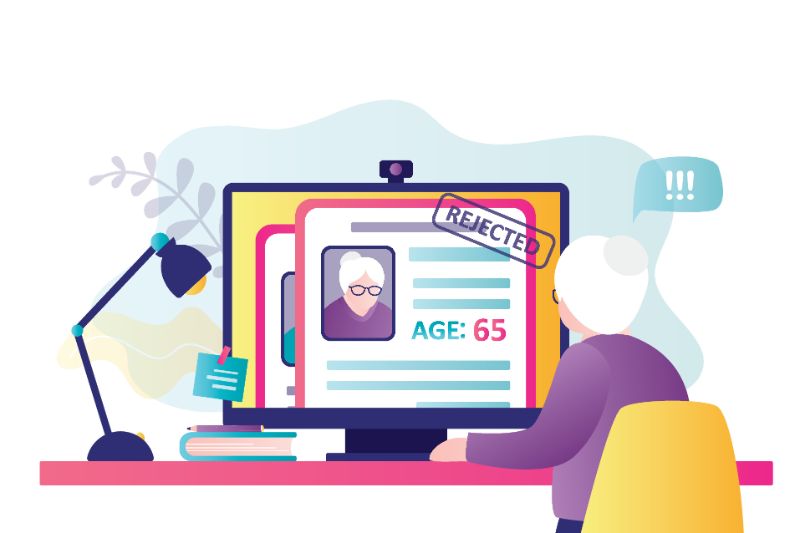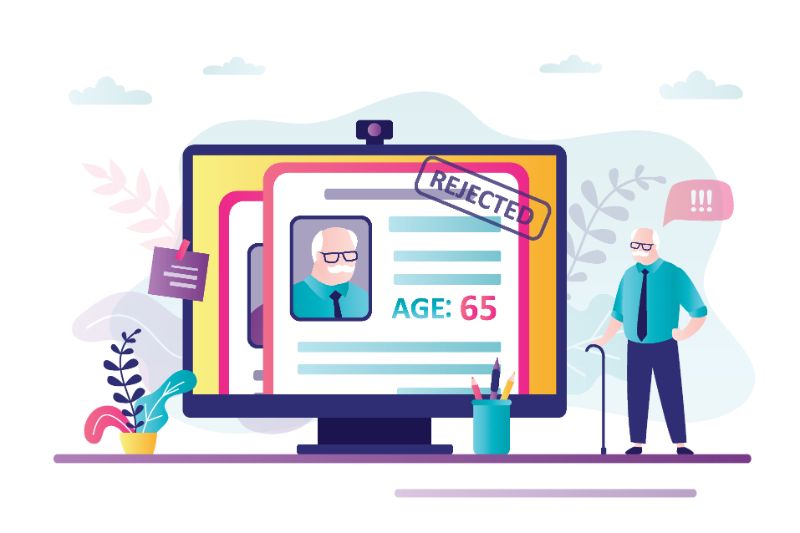Although seniors make up one of the larger portions of the online dating community, they nevertheless face a number of persistent stereotypes that discriminate against them and their ability to modernize, date, and even function independently.
These stereotypes are born out of a misunderstanding of one generation to another, and is commonly referred to as “ageism”. Although its origins can stem from age differences between groups, it can also be a self-perpetuating issue.
In this article, we’ll discuss what ageism really is and how it relates to seniors dating, as well as how seniors can confront it. We’ll also look at your odds of finding love as you hit 50+, and answer some frequently asked questions. Read on to learn more!
What is ageism?
Ageism broadly refers to a form of negative discriminatory practices against people in specific age groups, ranging from children, teenagers, people in their middle years, and seniors.
Age discrimination applies stereotypes to a given age group and categorizes them, attributing certain characteristics. These can be both favorable or derogatory, but tend to be negative.
An example of ageist practices is when an old man may assume that younger guys are physically capable but shortsighted and impulsive.
When you consider health care, people tend to view younger men and women as healthy and active. It can also be the case where older guys assume their own physical pain is untreatable and chronic, whereas with a younger man it is temporary and can be treated.

Another case for ageism against seniors is when younger people assume that older workers are resistant to change, not creative, cautious, slow to make judgments, lower in physical capacity, uninterested in technological change, and difficult to train.
Part of the issue is that many of these stereotypes are ingrained into cultural norms about being in certain age groups. When an older person forgets something it is called a “senior moment” and is seen as normal, and both old and young believe it.
As such, ageism can also perpetuate itself, as the effect in believing these stereotypes can encourage a degradation in capacity which confirms the stereotype. Studies have shown that believing in stereotypes can have such a negative effect when left unconfronted.
Fortunately, it has also been shown that when the elderly defy ageism that it can have a positive effect on their livelihood. As they show more independence and assume more control in their lives they are more likely to be healthier, both mentally and physically.
What role does ageism have in online dating sites for seniors?
For older women and older men who are daters online, ageism can have an impact on their potential love life both offline and online. These include how one is treated by their family and friends when they try to date, and how people online view their dating profiles.
The people in your inner-circle may have certain views and expectations of you based on your position in your own family and your age. For some, if it is the first time seniors are dating, their children and even grandchildren can have a hard time seeing them as a dater.
Online, people may view you as either someone who fits a specific type of dating niche, such as older women being “cougars”. They might also see your age and decide against reaching out to you if they are younger, preferring to date in their own age range.
In either case, ageism for seniors as they date can be measured by how “dateable” one sees the elderly. This is referred to with the slang “sexpiration date”, which refers to someone’s age after which they are no longer seen as an attractive partner, physically or figuratively.
Confronting these stereotypes is a constant struggle for older people when they want to find love online. Fortunately, there are things you can do to make this easier on yourself.

Confronting stereotypes about older people who date online
For starters, older people within the age range of 50+ can make sure that they keep themselves as physically and mentally fit as possible. This means taking time to be active, do mental exercises, and eat well.
Contrary to stereotypes that suggest 60 year-olds and above aren’t capable of understanding modern technology, prove them wrong by brushing up on the latest trends. Dating apps especially are common, so being savvy with how they work will help a lot.
Don’t rely on your family to make decisions about your love life for you. Of course, each case is an individual case, but as a rule of thumb you should be confident in your decisions to find a suitable partner.
You also don’t need their approval for dating, so long as you are comfortable doing so. Even if you are dating younger women or men, rest assured that the decision for you to do so rests on your shoulders.
Finally, be vocal and active about ageism that comes up in your personal life. Address it with either family or friends and with the people who are ageist. Even if they don’t mean to be, it is important that they are aware of what they are doing.
Defying ageism and working to prove the stereotypes that discriminate against seniors is already going a long way toward confronting and correcting it. Just like with sexism or racism, if no one acts against it or says anything about it, then nothing will change.
Why do we have age preferences?
Something that maybe starts even before you begin to look for a partner in high school is associating with people your own age. It’s a common practice that starts when we are very young and continues well into our own later life.
This is to say that there is a social and cultural expectation to gather with people who are in your age range: younger age people with the young, and older people who are in an old age themselves.
There is something to be said about shared experiences and relatability between people who are similar in age, as the odds of two people being in similar places in their lives is more likely.
Chances of finding love after 50
Contrary to what some people may feel about older adults and their ability to date, there are a plethora of dating apps and online dating sites designed to help seniors find their soulmate. There are also services like Tinder for meeting elderly singles for no-strings attached dating.
A large portion of online daters are actually seniors who are 50+, and as such a wide dating pool means better odds at finding a partner. Your chances of finding love after 50 if you are using online dating are actually pretty good, so long as you put in the time and effort.

FAQ on ageism and the difficulties of online senior dating
Ageism isn’t a clear-cut discrimination against the elderly and can impact young people, but the fact remains that it is often directed toward seniors. Although we have covered a good deal of ageism here, you still may have some questions about how it may affect you.
That’s why we’ve answered some of the most frequently asked questions for you here:
What are the different types of ageism?
Ageism can be seen in a variety of ways across a person’s routine. Some of the most prevalent examples can be seen in three different ways: implicit ageism, workplace ageism, and most relevant to dating, digital ageism:
- Implicit ageism – This is when thoughts, feelings, and judgements come about unconsciously and automatically in one’s everyday life, and can be either positive or negative.
- Workplace ageism – You can see this when employers and customers make assumptions about a worker’s capacity to learn and do a task based entirely on their age.
- Digital ageism – With digital ageism, older adults face the stereotype that suggests there is a generational segregation naturalized between the young and the old, with youth being digitally adept and the old remaining digital dunces.
What is an example of ageism?
Broadly speaking, examples of ageism include getting passed over for a job because you are seen as being too old, assuming that young people are irresponsible, and receiving poor service due to the organization’s internal attitude toward an age group.
What is the age range for dating?
With the misbelief that seniors may be too old to date, a natural follow-up question is “what is the age range for dating?” Dating age ranges depend on a wide number of factors, from what is considered socially acceptable in your area of the world and personal belief.
Generally dating starts for girls around the age of 12 and for boys 13, but this is just taken from studies that are looking for an average. As for the oldest you can date, the truth is that there’s no real limit on when you can date.
How much of an age gap is socially acceptable?
There’s obviously no hard rule for this, and it does depend on the culture you are coming from. One guideline you could follow is to take your age, divide it by 2, and then add 7. As an example, at 34 the youngest person you could date would be 24.